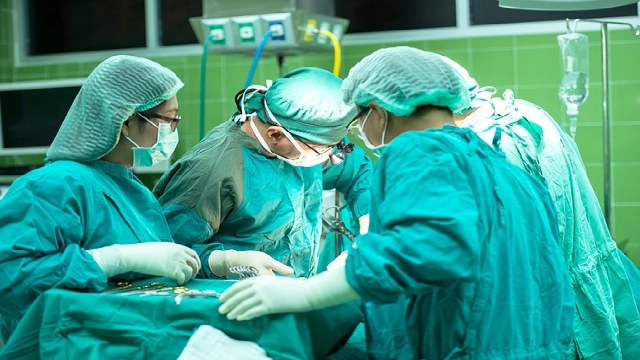 Organ transplantation is one of the most advanced and rewarding areas of modern medicine — offering patients not just longer life, but a better quality of life.
Organ transplantation is one of the most advanced and rewarding areas of modern medicine — offering patients not just longer life, but a better quality of life.
Let’s understand the two most common types of solid organ transplants: renal (kidney) transplant and pancreatic transplant, along with the role of the surgical team in achieving successful outcomes.
1️⃣ Renal Transplant (Kidney Transplant)
A renal transplant replaces a failing kidney with a healthy kidney from a living or deceased donor. It is the most common type of transplant performed in India.
✅ Benefits
- Freedom from dialysis: No more weekly hemodialysis or peritoneal dialysis sessions.
- Better quality of life: Improved energy, appetite, and overall well-being.
- Longer lifespan: Successful transplant patients often live much longer than those on long-term dialysis.
- Better blood pressure and anemia control.
👥 Who is eligible?
- Patients with end-stage kidney disease (ESKD) where kidneys have permanently lost function.
- Most patients on maintenance dialysis are candidates.
- Those with good heart function and absence of active infection or cancer.
- A compatible donor (relative or cadaveric) is necessary.
🧬 Evaluation
Both donor and recipient undergo:
- Blood group and cross-match testing.
- Kidney function, infection screening, and tissue typing.
- Cardiac evaluation before surgery.
2️⃣ Pancreatic Transplant
A pancreas transplant restores natural insulin production in people with Type 1 diabetes or select Type 2 diabetics with severe complications.
✅ Benefits
- Freedom from insulin injections and glucose monitoring.
- Better control of blood sugar, preventing long-term complications like kidney failure, neuropathy, and retinopathy.
- When done with a kidney transplant (simultaneous pancreas–kidney transplant, SPK), it offers a complete metabolic cure for diabetic nephropathy.
👥 Who is eligible?
- Type 1 diabetics with end-stage renal disease or severe unstable sugar levels.
- Patients with repeated hypoglycemia episodes despite optimal medical therapy.
- Age usually below 55 with good cardiac and liver function.
🏥 Post-Transplant Care
Post-operative care is crucial for graft survival and patient health.
🔹 Immediate Phase
- Close monitoring in a transplant ICU for urine output, kidney function, and vital signs.
- Early mobilization to prevent clots and infections.
- Immunosuppressive medicines are started to prevent rejection.
🔹 Long-Term Care
- Regular follow-up visits for blood tests (creatinine, sugar, tacrolimus levels).
- Infection prevention: due to reduced immunity, patients must avoid crowded places and follow hygiene precautions.
- Diet control: Adequate hydration, low salt, and balanced protein intake.
- Medication adherence: Missing even one dose of immunosuppressant can lead to graft loss.
🩺 Role of the Surgeon in Better Outcomes
The success of a transplant doesn’t depend only on surgery — it’s a lifelong partnership between the patient and the transplant team.
👨⚕️ The surgeon’s responsibilities include:
- Careful pre-operative selection and optimization of both donor and recipient.
- Performing surgery with precision — ensuring proper vascular and urinary connections.
- Managing immediate post-operative complications such as bleeding, delayed graft function, or rejection.
- Guiding long-term follow-up in coordination with nephrologists and endocrinologists.
A skilled and experienced surgeon ensures minimal complications, faster recovery, and long-lasting graft survival.
🌿 In Summary
Organ transplantation represents a second chance at life.
Whether it’s a kidney transplant freeing a patient from dialysis, or a pancreas transplant freeing them from insulin — success depends on timely evaluation, lifelong care, and the dedication of the transplant team.

About Dr. Karthik N.V.K.N
Services
- Kidney & pancreas transplant evaluation
- Access surgery & vascular care
- Pre-transplant optimization
- Post-transplant follow-up
- Second opinions & counselling
